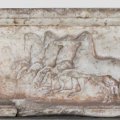It is difficult to believe there are more Australian Studies Centres in China than in Australia. But according to a University of Queensland academic, this goes to highlight the growing interest in Australia from Chinese people.
The Director of UQ’s Australian Studies Centre (ASC), Professor David Carter, is helping promote Australian Studies in the People’s Republic of China and will attend the Biennial Chinese Australian Studies Association Conference at Inner Mongolia University in July.
China has more than one dozen centres compared with only four in Australia.
“This is quite a significant achievement when you think that there are probably 30 or 40 students at any one time completing Masters degrees in Australian Studies in China,” Professor Carter said.
“It is remarkable that there is that kind of interest.”
ASC has a contract with the Australia China Council within the Department of Foreign Affairs and Trade to promote Australian Studies in China through various educational programs. The UQ centre conducts research into all aspects of Australian history, culture and politics and runs a fellowship scheme on behalf of the Council. It also manages a book prize awarded to Chinese-language research publications about Australia, and supports the activities of the Australian Studies centres in China.
“The aim of the Australian China Council is to produce a wider, informed public in China, more knowledgeable about Australia,” Professor Carter said.
Professor Carter’s research focuses on Australian cultural history, particularly print cultures – the position that books, newspapers and magazines hold in Australian culture.
As Project Manager for the Australian Studies in China Program, Professor Carter will speak at the Chinese conference’s opening ceremony and will give a paper focusing on trends in literary studies research in Australia.
“A lot of the cultural and academic activities centre on the larger cities so taking the conference to Inner Mongolia was an attempt to take it to an area that might not otherwise have been part of the Australian Studies network,” he said.
Professor Carter said interest in Australia and Australian culture was growing among Chinese people.
“Due to the heightened migration from mainland China over the past decade, there are more and more people who have some family or community link into Australia,” he said.
“We are starting to get more informed questions and we are slowly building a store of knowledge.”
One of the things that has driven this interest is access to the Internet in China, according to Professor Carter.
“Although one of the big problems is the shortage of resources, what we are finding now is that the students are incredibly switched on and will use the Internet to find up-to-date research data,” he said.
Professor Carter said Chinese students were particularly interested in Aboriginal culture, contemporary multiculturalism and the environment.
“They are very aware of the environmental problems in China and they see Australia as a leader in environmental protection,” he said.
“In the early years there was a strong dominance of studies in literature but this has now become much more varied. You now see studies in economics, business, environment, museums and other cultural institutions, and international relations.”
Media: For more information, contact Professor David Carter (telephone 07 3365 2265, email david.carter@uq.edu.au) Chris Saxby at UQ Communications (telephone 07 3365 2479, email c.saxby@uq.edu.au).
.jpg)



